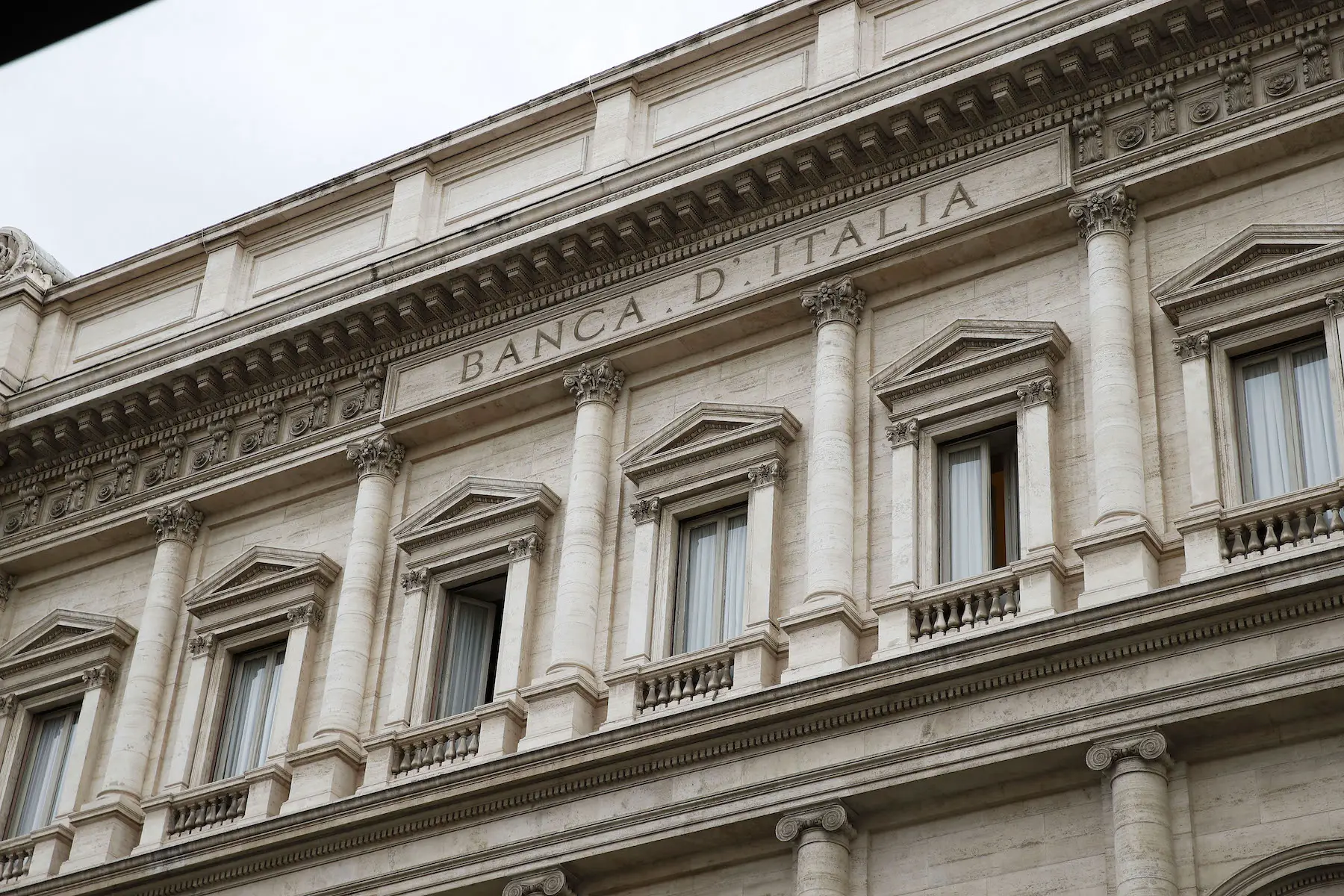Italy is keen to attract entrepreneurial talent to its shores, so it’s a great time to consider setting up a business there. However, Italy has some strict legal regulations, so it’s essential to weigh the pros and cons before starting a business.
Keep reading for more information on the following:
- Business culture in Italy
- Who can start a business in Italy?
- Legal structures for businesses in Italy
- How to start a business in Italy as an expat
- Starting up an online business in Italy
- Foreign companies opening up a branch or subsidiary in Italy
- Starting up a non-profit organization in Italy
- Administrating your business in Italy
- Corporate social responsibility in Italy
- Support and advice when starting up a business in Italy
- Useful resources
Xolo
Xolo is an all-in-one service tailored for expat freelancers in Italy. Their team of expert accountants and digital business management tools support freelancers in English so they feel secure when setting up and running a business. Sign up for Xolo to take care of your invoicing, expenses, and taxes easily.
Business culture in Italy
Italy is considered an excellent country to start a business. It ranks 28th out of 132 countries in economic strength on the 2022 Global Innovation Index. As with any country, it’s critical to research the business culture and develop a sound entrepreneurial plan if you want to set up your own business.

In 2020, Italy had just over 4.4 million registered businesses operating across the country. An overwhelming majority (4.2 million) of these were small businesses with fewer than 10 employees. Surprisingly, only around 10% of companies are foreign-owned. The most popular business sectors in the country are:
- Retail
- Science and technology
- Construction
- Manufacturing
- Tourism
In terms of business culture, Italians operate based on trusted relationships. Therefore, businesses prefer to partner with those they know rather than make a new connection. Although most Italian companies have a hierarchical structure, processes are relatively informal; for example, meetings are usually open and unstructured. People prefer face-to-face meetings, so it’s a good idea to brush up on your Italian skills as English is less common than in many other European countries, which might present a challenge.
Who can start a business in Italy?
Although Italy has a reputation for red tape and bureaucracy, starting your own business is relatively straightforward. Citizens from the European Union (EU) and European Free Trade Association (EFTA – Iceland, Liechtenstein, Norway, and Switzerland) don’t require a business visa for Italy. As long as they have sufficient income to support themselves and register with their local municipality (comune), they can open a business.
Third-country nationals from outside the EU/EFTA must apply for a relevant business visa. Because of Brexit, this includes UK nationals who were not living in Italy before 1 January 2021.
Additional requirements depend on the type of business you plan to set up. For example, you may require the approval of a licensing body for specific skilled professions or minimum investment capital for particular business structures.
Legal structures for businesses in Italy
Most for-profit Italian businesses fall into one of the following legal structures:
- Sole proprietorships (ditta individuale)
- Partnerships (associazione)
- Corporations (società/corporazione/compagnia)
Deciding which structure works best for you is one of the first steps in setting up your business (2021) in Italy. How you design the company is your choice, but you may want to consult an expert, such as an Italian business notary.

Here is a brief explanation of the different legal structures for Italian businesses, including their sub-types.
Sole proprietorships
In a sole proprietorship, an individual trades as a business, and the company doesn’t exist as a separate legal entity. Therefore, there is no distinction between personal and professional income, and the owner is liable for all business debts. Italy taxes business revenue as personal income. Due to the high level of autonomy and low risk, sole proprietorships are likely the most straightforward way to start your own business.
Sole trader (Ditta Individuale)
Individuals who sell goods or provide services as a business are known as sole traders. The name of a sole trader’s business must contain the individual’s given name or surname (e.g., Wright’s Hair and Beauty Salon). The company can operate from fixed premises, or the sole trader can sell their goods and services as a mobile entrepreneur. Sole traders can employ staff and are legally responsible for the necessary tax and social security arrangements.
Freelancer (Libero Professionista)
Freelancers are similar to sole traders in that they are self-employed individuals. However, they tend to offer services exclusively and rarely operate out of fixed premises. In Italy, freelancers trade solely under their own name and cannot employ staff.
Freelancing is a flexible business structure that works great for certain professions, such as software developers, journalists, photographers, and accountants.
Partnerships
Similar in structure to sole proprietorships, partnerships include two or more people rather than one individual. As with sole proprietorships, partnerships are not separate legal entities and therefore are not liable for corporation tax. Each partner pays income tax on the profits and is jointly responsible for any business debts.
Partnerships are relatively easy to establish, requiring only a simple business agreement rather than full articles of incorporation. Also, partnerships have no minimum investment of capital needed.
General or unlimited partnership (Società in nome collettivo – SNC)
General – or unlimited – is the most common type of partnership business. In this case, each partner carries the liability for their share of ownership. The business’s name must include at least one partner’s name and indicate its structure (i.e., general or unlimited) by adding the acronym SNC.
Limited partnership (Società in accomandita semplice – SAS)
Limited partnerships have two different partner roles: general/unlimited and limited.
The limited partner is restricted to ownership, direction, and providing capital. They must refrain from taking part in the day-to-day administration of business activities. While the liability of general partners is unlimited, the limited partners are only liable for the amount of capital they have invested.
The business name must include the name of at least one general partner and indicate that it’s a limited partnership by adding the acronym SAS.
Corporations
Corporations are businesses that exist as separate legal entities and pay corporate taxes. The owners are legally classed as employees whose liability is limited to the assets they’ve invested in the business.

In Italy, corporations must fulfill specific paperwork requirements and have:
- A managing director or board of directors
- A certificate of incorporation
- A minimum share capital
The required amount of financing varies based on the type of corporation.
Limited liability company (Società a responsabilità limitata – SRL)
The most common type of corporation is the limited liability company (SRL). This is a private corporation with one or more owners. Many SRLs also establish a board of directors responsible for decision-making and steering the business.
SRLs require company rules in the form of articles of association and a minimum share capital of €1. Owners must pay at least 25% of the starting capital upon signing the articles of association.
Simplified limited liability company (Società a responsabilità limitata semplificata – SRLS)
The SRLS is a relatively new type of business that aims to encourage young entrepreneurship. Known as simplified limited liability companies, these are easier to set up as they only require deeds of incorporation rather than full articles of association. This also makes the process cheaper because it doesn’t require a notary.
The minimum share capital is €1 but can be no more than €9,999. Finally, companies cannot own shares of an SRLS; only individual shareholders are allowed.
Public limited company (Società per azioni – SpA)
Also known as a joint stock company, a public limited company – or SpA – has shares that can be publicly bought and sold. There are more legal requirements for this model than the SRL. For example, the minimum share capital is €50,000, with at least 25% paid at the signing of the articles of association.
SpA companies must have a board of directors as well as a board of auditors.
Cooperative society (Societa cooperativa)
A cooperative society is a limited company that mutually benefits members and employees rather than making a shareholder profit. Cooperatives in Italy are similar in structure to other limited companies but require a minimum of three shareholders.
The minimum share capital is €25 per shareholder, with an overall maximum of €100,000.
How to start a business in Italy as an expat
The specific process for starting a business in Italy depends on what type you want to set up. Doing plenty of market research will help you determine the viability of your idea, draw up a robust business plan, and seek professional business advice on any aspects that need to be clarified.
You can also contact a financial management company to help you with every aspect of setting up your business in Italy as an expat. Useful sites include:
Moving2Italy
When relocating to Italy, get expert help from Moving2Italy on taxes, work permits, and setting up a business. They also provide personalized support for immigration, social security, and residence, helping you navigate your new life abroad. For assistance with fiscal and immigration matters, contact Moving2Italy.
How to obtain a business visa in Italy
If you’re from outside the EU/EFTA, you usually need a business visa to start a company or work as a freelancer in Italy. Most business visas are valid for two years and renewable for up to five years, at which point you can apply for permanent residence.

There are a few different business visas to choose from:
- Investor visa – if you have at least €250,000 to invest in a new business in Italy
- Self-employment visa – if you want to start a business or work as a freelancer in Italy, provided that your venture will benefit the Italian economy
- Startup visa – if you have a viable plan and at least €50,000 to invest in the business
For all three, you will need to provide a solid business plan and proof of required skills, qualifications, or experience in your industry. Additional visa requirements include:
- Government authorization (nulla osta) confirming that the annual quota decree (decreto flussi) includes your work
- Proof of sufficient finances to support yourself
- Health insurance coverage
In 2023, an Italian business visa costs €116, plus you will need to pay for a residence permit upon arrival. Short-stay visas cost €80 and are a good option if you’re coming to Italy for a brief freelance job.
Registering your business in Italy
All companies must sign up with the National Business Register (Registo Imprese) before trading. To do this, you will need:
- A name for the business
- The articles of association (Statuto) and memorandum (Atto Costitutivo), if you are an incorporated business
- A separate business bank account (required if you are an incorporated business)
The Chamber of Commerce (Camere di Commercio) manages the Italian Business Register. If you are an incorporated business (other than an SRLS), the notary who oversees the signing of your articles of association will also take care of registration. Freelancers don’t need to enter the Register.
In addition, Italian businesses also need to register with the following authorities:
- Tax Agency (Agenzia Entrate) – to register for taxes and get your business tax number (if setting up a corporation), as well as your VAT number
- National Institute of Social Security (Istituto nazionale della previdenza sociale – INPS) – so that you can make social security payments and access benefits, including state pensions
- National Institute for Occupational Accident Insurance (Istituto Nazionale per l’Assicurazione contro gli Infortuni sul Lavoro – INAIL) – for insurance coverage of work-related accidents and illnesses
Registering for all of this online is now possible through the Single Business Communication (ComUnica) system. The process usually takes around five to seven days. You will need to pay an annual fee of about €200 for businesses with a turnover of up to €100,000, plus a small initial administration charge.
Licenses and permits
In Italy, certain regulated professions require a license or permit to operate in that field. This includes most medical professionals, teachers, lawyers, tour guides, security guards, hairdressers, and more.

You can check the list of regulated professions and find contact information for their respective regulatory authorities.
Starting up an online business in Italy
Setting up an online-only business in Italy follows many of the same procedures as a regular company. However, you must adhere to the regulations and guidelines specific to digital trade. You can find useful information on the Agency for Digital Italy (Agenzia per l’Italia Digitale – AGID) website, as well as details on data protection from the Italian Data Protection Authority (Garante per la protezione dei dati personali – GPDP).
Foreign companies opening up a branch or subsidiary in Italy
There are three ways for a foreign business to establish itself in Italy:
- Setting up a subsidiary
- Opening a branch
- Establishing a representative office
Subsidiary businesses are separate legal entities from their parent company. As such, the formation process is similar to setting up a new business. The subsidiary business will establish its base in Italy, pay taxes, and carry out administration separately from the parent company. The connection between the parent and subsidiary is usually through the involvement of a company representative, such as a board member.
Branches are not separate legal entities. To cover activities in Italy, they need to enter their details with the Italian Business Register for taxes, social security, and insurance. The foreign parent company is still liable for all Italian business activity, including settling debts.
To open a branch in Italy, you need to provide:
- Minutes of the director or shareholder meeting where it was agreed to open an Italian branch
- Articles of association for the parent company, translated into Italian and notarized
- An individual representative from the parent company who has the relevant Italian work visa and tax number (codice fiscale)
If you need your documents to be translated professionally and quickly, contact a reputable service such as lingoking.

A representative office is a local base for conducting certain business activities, for example, storage, display, or purchase of goods. You are not required to keep accounts or pay any business tax in Italy as long as you don’t make any money in the country. However, you need to enroll in the Economic and Administrative Register (Repertorio Economico Amministrativo – REA), a sub-section of the Business Register.
Starting up a non-profit organization in Italy
Suppose you’d prefer to set up something with a social or charitable purpose in Italy rather than a profit-making enterprise. In that case, you can establish a non-profit organization (Organizzazione non lucrativa di utilità sociale – ONLUS). There are two main types of ONLUS:
- Association (Associazione) – at least two individuals with shared non-profit aims
- Foundation (Fondazione) – one or more individuals or companies that designate assets, usually financial, for a charitable purpose
lingoking
Do you need help translating documents? Ensure all your legal proceedings go smoothly by using lingoking for all your translation needs. Whichever papers you need to be translated, lingoking’s network of professional translators can help. Order online 24/7 and take some of the stress out of starting your new business.
Italian non-profits typically need articles of association or a notarized founding document that clearly expresses the organization’s rules and aims. All non-profits must join the Single National Register of the Third Sector (Registro Unico Nazionale Terzo Settore – RUNTS) and enroll with the taxation and social security authorities to qualify for reduced tax rates.
Administrating your business in Italy
Whether you run a micro-business as a sole trader or a multinational corporation that employs hundreds of staff, maintaining organized business records is the key to efficient administration. All businesses in Italy must keep accounting records for at least ten years.
There are two different accounting methods:
- Ordinary method – for companies with a turnover of €700,000+ (or €400,000+ if you provide services rather than goods)
- Simplified method – for all other companies
SpAs, large SRLs, and regulated financial institutions have to undergo an annual audit by one of the following:
- An appointed board (Collegio Sindacale)
- A sole auditor (Sindaco Unico)
- A firm (società di revisione)
- An external auditor (revisore)
Administration considerations
Other things to consider when running a business in Italy include:
- Taxation – business taxes in Italy can include corporation tax, VAT, and regional or local taxes, which you will need to pay on time to avoid penalties
- Social security – if you’re self-employed, you will be responsible for arranging your own social security payments to cover things such as unemployment benefits, disability benefits, and pensions
- Banking – opening a separate business bank account is a legal requirement for limited corporations. It’s also a good idea for a freelancer as it makes accounting easier.
- Insurance – liability insurance is compulsory for Italian businesses. You may also need other types of coverage, such as equipment or cyber insurance.
- Hiring staff – if you have employees, you’ll need to adhere to the Italian labor law to protect workers’ rights, take responsibility for taxes and social security payments, and obtain work permits to hire foreign staff from outside the EU/EFTA

You can search Expatica’s business listings directory to find expat-friendly accountants and financial services throughout Italy, including tax advisors, banks, and insurance companies.
Corporate social responsibility in Italy
Italy can trace its responsible business practices back several centuries. For example, the world’s oldest bank, Monte Paschi di Siena, was founded on social principles. Also, local and regional businesses always had close ties with the communities they serve.
Still, it is only recently that corporate social responsibility (CSR) has become a mainstream value among Italian businesses. According to a national report, the number of businesses focusing on CSR in Italy has risen from 44% in 2001 to 85% in 2017. Italy ranks 25th internationally on the 2022 Sustainable Development Report (with a score of 78.3 out of 100), and 9th in Europe on current CSR Hub ratings.
The Chamber of Commerce has a CSR section on its website with information on regulations and good practice. Businesses in Italy can promote their CSR in a number of ways, such as:
- Improving employee rights and decision-making capabilities
- Moving to more environmentally sustainable practices
- Getting involved in local community projects
Support and advice when starting up a business in Italy
If you are planning to start a business in Italy, here are some helpful resources for the process:
- Italian Trade Agency (Agenzia ICE) – useful information for international residents looking to set up a company or invest in Italy, including a handy Doing Business guide
- Chamber of Commerce (Camere di Commercio) – offers information on various commercial topics and maintains a business portal
- INV Italia – National Agency for Investment and Business Development, with information on support and funding, including programs for startups
- Made in Italy – Ministry of Enterprises initiative, includes a list of funding schemes for businesses
- Ministry of Labor and Social Policies (Agenzia Nazionale Politiche Attive del Lavoro – ANPAL) – information on current incentives to encourage young entrepreneurs
- Incentivi – Ministry of Enterprises portal with information on incentives for businesses and entrepreneurs in Italy
- National Council of Chartered Accountants and Accounting Experts (Consiglio Nazionale dei Dottori Commercialisti e degli Esperti Contabili – CDNCEC) – search for financial experts in Italy
- National Council of Notaries (Consiglio Nazionale del Notariato) – find a notary in Italy
Useful resources
- Doing Business – guide from the Italian Trade Agency with information relevant to starting a business in Italy, including business legal structures, taxation, and hiring staff
- Impresa in un Giorno – Italian Chamber of Commerce business portal
- INV Italia – provides support to those in Italy who want to become self-employed or start their own business
- Agenzia Entrate – Italian Tax Agency with information on tax and accounting for businesses and individuals









